- News
- Reviews
- Bikes
- Components
- Bar tape & grips
- Bottom brackets
- Brake & gear cables
- Brake & STI levers
- Brake pads & spares
- Brakes
- Cassettes & freewheels
- Chains
- Chainsets & chainrings
- Derailleurs - front
- Derailleurs - rear
- Forks
- Gear levers & shifters
- Groupsets
- Handlebars & extensions
- Headsets
- Hubs
- Inner tubes
- Pedals
- Quick releases & skewers
- Saddles
- Seatposts
- Stems
- Wheels
- Tyres
- Tubeless valves
- Accessories
- Accessories - misc
- Computer mounts
- Bags
- Bar ends
- Bike bags & cases
- Bottle cages
- Bottles
- Cameras
- Car racks
- Child seats
- Computers
- Glasses
- GPS units
- Helmets
- Lights - front
- Lights - rear
- Lights - sets
- Locks
- Mirrors
- Mudguards
- Racks
- Pumps & CO2 inflators
- Puncture kits
- Reflectives
- Smart watches
- Stands and racks
- Trailers
- Clothing
- Health, fitness and nutrition
- Tools and workshop
- Miscellaneous
- Buyers Guides
- Features
- Forum
- Recommends
- Podcast
review
 2024 Orbea Orca M10iLTD PWR - riding 1.jpg
2024 Orbea Orca M10iLTD PWR - riding 1.jpg£11,749.00
VERDICT:
High-performance race bike oozing responsiveness and stiffness and an easy-to-ride nature
Huge amounts of stiffness where required
Responsive
Decent comfort for a stiff bike
Not the lightest at this price point
Weight:
7,040g
Contact:

This product has been selected to feature in road.cc recommends. That means it's not just scored well, but we think it stands out as special. Go to road.cc recommends
At road.cc every product is thoroughly tested for as long as it takes to get a proper insight into how well it works. Our reviewers are experienced cyclists that we trust to be objective. While we strive to ensure that opinions expressed are backed up by facts, reviews are by their nature an informed opinion, not a definitive verdict. We don't intentionally try to break anything (except locks) but we do try to look for weak points in any design. The overall score is not just an average of the other scores: it reflects both a product's function and value – with value determined by how a product compares with items of similar spec, quality, and price.
What the road.cc scores meanGood scores are more common than bad, because fortunately good products are more common than bad.
- Exceptional
- Excellent
- Very Good
- Good
- Quite good
- Average
- Not so good
- Poor
- Bad
- Appalling
The Orbea Orca M10iLTD PWR eschews out-and-out aerodynamics to focus on being as light, stiff and efficient on climbs as it can possible be. For anywhere that you aren't racing against the clock it feels incredibly efficient, purposeful and just all round fun to ride. Not only that, but you can also spec frame colours and components to give some personalisation to your superbike – after all, if you are spending nearly £12k you want it to stand out from the crowd!
> Buy now: Orbea Orca M10iLTD PWR for £11,749 from Orbea
If you're after more wind-cheating options, check out our guide to the best aero road bikes, or for shedding all the weight you can, our feature on the lightest road bike frames and components in the world should help…
Orbea Orca M10iLTD PWR: Ride
Orbea's longstanding Orca range has been through many iterations, and with the launch of the Orca Aero, which I reviewed earlier this year, this one has been left to focus on conditions where cutting seamlessly through the air isn't necessarily a priority.
At just over 7kg on our scales this Orca isn't the lightest bike on offer, especially not at this price, but it certainly doesn't hamper things when the road turns upwards. Throw incredible stiffness into the mix and what you are left with is a very responsive bike that enjoys being ridden hard.
Riding my hilly test routes highlighted how tight the bottom bracket area of the frame is, while chunky chainstays keep the rear wheel in check when powering hard out of the saddle. The frame definitely wasn't challenged by the power I could put through it.
Any bike that favours going up also needs to provide poise and confidence on the way down, and the Orca certainly does that. For such a stiff bike I was surprised it didn't suffer from any kind of skittishness over poor road surfaces, and while the geometry is of a racy nature, when paired with the surefooted nature of the ride, the Orca handles very well, allowing you to take corners at speed, and the more technical the better.
The sub-metre wheelbase keeps the whole bike feeling nimble, too, allowing you to swoop your way through hairpin bends. It really is a very easy bike to control and a lot of fun to ride.
While being aero isn't the Orca's main role, it's not like we are talking about an old school skinny-round-tubed frame here. There are still various shapes and blending between the tube sections for it to be efficient enough on the flat, but without the trade-off of a frame with a much larger surface area from the side for dealing with crosswinds.
The 35mm-deep wheels fitted here are a good compromise for all kinds of riding, but should you want to go deeper there's a choice of 45mm or 57mm in the configurator.
For such a stiff frame there is a reasonable amount of compliance in certain parts, like the slender seatstays which aid comfort to a degree. It's not plush by any stretch of the imagination, but it does a decent job of soaking up the high-frequency vibrations from the road surface and certainly doesn't batter you about even when riding on rough back lanes.
The geometry is designed to put you in an efficient riding position, and while I could get low at the front, I didn't find myself overly stretched out. As I mentioned above, the handling is quick, but Orbea hasn't entered the realms of twitchness here. The head tube angle is backed off a touch compared with some race bikes at this level and that seems to have just reined in the speed of the handling slightly.
On longer rides I found the overall position comfortable, just relaxed enough that I wasn't placing undue strain or weight on my shoulders, wrists or lower back, but still feeling like I was on a performance road bike.
Orbea Orca M10iLTD PWR: Frame & fork
The Orca range is available in two frame options, the higher-level OMX and the OMR which is found on the lower priced models. The OMR is built from Toray's T800 carbon fibre which balances compliance with durability but adds weight.
The OMX that we have here uses Toray's high-end T1000 which offers huge amounts of stiffness plus compliant ride characteristics at a lower weight. Orbea claims frame weights of 1,126g for the OMX and 1,400g for the OMR (size 53cm), so not heavy, but not as impressively light as some.
For a clean look and a smooth, uncluttered finish, everything that can be incorporated into the frame and fork has been. The brake hoses and gear cables if you have them (the Orca frame is compatible with both electronic and mechanical groupsets) are fed into the frame beneath the stem and into the head tube before leaving the frameset just before they are needed.
Orbea has designed the head tube to absorb the top cap for the headset and it has also used an internal clamping system for the seatpost. For a non-aero bike, the basics have still been covered.
Tyre clearance has been brought bang up to date, too, at 32mm which I think is ample for a pro-peloton-level race bike.
As per the norm you get a couple of bottle cage mounting points, 12mm thru-axles front and rear and, of course, flat-mount brake callipers.
For the bottom bracket Orbea has gone down the BB386 route. It's a press-fit design where the bearing cups are pressed into the frame. If you're not familiar with this system, the benefit of running the bearings internally compared to a threaded BSA system where they sit outboard is that the bottom bracket shell can be wider without changing the q-factor (the distance between the cranks). The wider shell allows for wider tubes adjoining, like the down tube and seat tube, plus the chainstays, which allows for increased stiffness overall.
Trade-offs can be water and dirt ingress if the tolerances between the frame and bearing cups aren't tight, which can cause creaking noises, plus alignment has to be spot on or premature wear to the bearing races can occur. Thankfully, these problems do seem to be largely resolved on the latest framesets.
For the finish Orbea offers some off-the-shelf paint colours, but should you wish you can also use its customisation tab and choose a paintjob of your choice along with whichever colour decals you would prefer.
The Orca is available in seven sizes, ranging from 47cm through to 60cm, which equate to top tube lengths of 510mm to 590mm.
The 55cm I've been riding has a top tube of 560mm and stack and reach figures of 572mm and 365mm respectively.
The head tube is 173mm tall, which, with a 520mm seat tube, creates a slightly sloping top tube; standover height is 788.5mm.
The wheelbase is 991mm, so at the more compact end of the scale for a bike of this size, and that includes chainstays of 408mm.
The seat tube angle sits at 73.5 degrees while the head angle is 73. The fork is 365mm in length and has an offset of 43mm.
Orbea Orca M10iLTD PWR: Groupset
Sitting in the upper echelons of the range, this model is specced with top-end kit, as you'd expect. The groupset is Shimano's finest, Dura-Ace Di2, and as the PWR denotes in its name, it includes a power meter.
We reviewed the R9200 version of Dura-Ace back in 2021 just after it was launched and were very impressed. Not surprising really, when you can buy a mid-range bike for the cost of an entire groupset. Though the power meter (which we reviewed separately) didn't fare quite so well.
It's a 12-speed groupset, and while the derailleurs are wired from the internal main battery (often located within the frame or seatpost), the shifters are now completely wireless.
Shifting performance is amongst the best out there, with excellent precision and a movement that is so light that it can be almost undetectable that a shift has been made. Battery life is good for all parts of the setup, and the latest hood design gives great ergonomics for grip and comfort.
The only chainset option is 52/36T, although you can choose from an 11-30T or 11-34T cassette depending on what type of riding you are likely to do. If you remove the power meter using Orbea's configurator, you'll save £570.
If you order your Orca from Orbea's website you get to spec what size brake rotors you want: a mix of 160mm front and 140mm rear as we have here, or 160mm front and rear, or 140mm front and rear. Dura-Ace's braking is also pretty excellent, with power and modulation in equal measure.
Orbea Orca M10iLTD PWR: Finishing kit
As for the rest of the build, ours is largely based on Orbea's own OC components, with its carbon fibre round handlebar and alloy integrated stem, and inline carbon fibre seatpost. It's all good kit, with the handlebar offering plenty of hand positions.
An aero handlebar option is available with an integrated stem from FSA's Vision range, but that adds £265 to the overall cost.
Perched atop the seatpost you'll find a Fizik Vento Antares saddle, the R1 model with carbon fibre rails. I generally get on well with Fizik saddles and this one is no exception, proving to be a very comfortable seat with a slender profile.
Orbea Orca M10iLTD PWR: Wheels & tyres
There are several wheel options on offer, all from Oquo. We have the Road Performance RP35 LTDs. Oquo is Orbea's in-house wheel brand, and these actual wheels are available separately for £1,999, with a choice of logo colours.
They have 35mm-deep carbon fibre rims which are hooked for use with both clincher and tubeless tyres, and a 24mm internal width gives them great compatibility with road tyres of widths that the Orca can run.
They use Zipp's Cognition VS2 hubs, laced to the rims with Sapim's CX Ray spokes, so it's a good quality build.
I liked the ride quality overall. They offer plenty of lateral stiffness, and a claimed weight of just 1,370g means they are an ideal match for the Orca's climbing credentials.
It's not unusual for a review bike to arrive with slightly different components than that specced on the website. In this case we are talking about tyres. Our bike arrived with some very good Pirelli P-Zeros Race TLRs, although the site lists Vittoria's Corsa Pros in a choice of either a 26mm width or 30mm. Whichever you go for I reckon you'll be happy, as both options give plenty of grip and a supple ride feel.
Orbea Orca M10iLTD PWR: Pricing & competition
The Orca range kicks off at £2,699 with the Shimano 105 mechanical-equipped M30 model, and tops out at a heady £12,499 for the M10i Lotto Dstny Replica (that's not a typo by me – it's another of those 'let's look really cool by losing the vowels' kind of thing).
There are frameset-only options too, with the OMR costing £2,899 (not sure why that's more expensive than the full 105-equipped bike – we've asked) and the OMX £3,799 – or £4,649 if you want the Lotto Dstny paint.
This M10iLTD PWR model is £11,734, and if you go for the most expensive build with the Vision cockpit that pushes the price up to £11,999. A SRAM Red AXS model is available for the same price.
That price is just shy of the £12k asking price for Specialized's S-Works Tarmac SL8 equipped with SRAM Red AXS, a bike that Jamie described as 'the new race bike benchmark' when he reviewed it last year.
I haven't ridden the SL8, but I did ride the S-Works SL7 which isn't a world apart from the new model, and it was stunning. A better all-rounder race bike than the Orca? Arguably, yes, but by a tight margin.
Giant's TCR range received an update earlier in the year, bringing it bang up to date, and it's a direct competitor of the Orca by not focusing primarily on aerodynamics, making it more of an all-round race bike.
We last reviewed a high-end TCR in 2021 (although we should have a review of this new model soon) and Mat was very impressed indeed, which bodes well for the new one with the obligatory increased stiffness, decreased weight and improved 'aeroness'.
The top-end model, the TCR Advanced SL 0 DA, costs a bit more than this Orca, coming with Dura-Ace Di2 and some very bling Cadex deep-section wheels for £11,999. There is no mention of a power meter, though. Max tyre clearance is 33mm.
Factor's O2 VAM is another top-flight climbing bike I've recently reviewed and it impressed me a lot. In a Dura-Ace or SRAM Red AXS build the price is also £11,999, so the Orca is priced in line with its peloton buddies.
There is a fly in the ointment, though, with the name Canyon emblazoned on the down tube. I reviewed the Ultimate CFR AXS back in the summer and found it to be a brilliant bike in absolutely every way.
It comes with the brand new SRAM Red AXS groupset (which is also brilliant – full review here), weighed 6.75kg on our scales, and includes neat touches like deep-section Zipp wheels and a 3D printed saddle. All for a relative bargain of just £9,749!
Orbea Orca M10iLTD PWR: Conclusion
When you get to this level there really isn't such a thing as a bad bike, they are all pretty much at the peak of what's achievable from a design and manufacturing point of view, and the Orca is definitely a showcase for that. The margins in performance and comfort from all of those bikes mentioned above and the Orca are also tiny, so with the prices being so similar, whichever choice you go with I don't think you'll be disappointed.
The Orca would definitely make it onto my shortlist, though, as it just does everything really well but is also a very easy bike to ride fast. It has all of the feeling and response of a race bike, but you don't need to be riding it on the limit to get the best out of it. Its saddle and handlebar are just very pleasant places to put your contact points.
> Buy now: Orbea Orca M10iLTD PWR for £11,749 from Orbea
Verdict
High-performance race bike oozing responsiveness and stiffness and an easy-to-ride nature
road.cc test report
Make and model: Orbea Orca M10iLTD PWR
Size tested: 55
About the bike
List the components used to build up the bike.
Crankset
Shimano Dura-Ace R9200-P Powermeter 36x52t
Shifters
Shimano R9270
Cassette
Shimano Dura-Ace R9200 11-30t 12-Speed
Rear derailleur
Shimano Dura-Ace Di2 R9250
Front derailleur
Shimano Dura-Ace Di2 R9250
Chain
Shimano CN-9100
Handlebar
OC RP10-R Carbon
Stem
OC RP11
Brakes
Shimano R9270 Hydraulic Disc
Rotors
160mm Front /140mm Rear
Wheels
Oquo Road Performance RP35LTD
Tyres
Vittoria Corsa Pro Speed G2.0 TLR 700x26c (Ours has Pirelli P-Zero Race TLR)
Seatpost
OC Performance XP10-S Carbon, 27.2mm
Saddle
Fizik Vento Antares R1 Carbon Rail 140mm
Tell us what the bike is for and who it's aimed at. What do the manufacturers say about it? How does that compare to your own feelings about the bike?
Orbea says, "The feeling of a bike this light and efficient is unbeatable, and this instant acceleration, vibration absorption and responsive handling come from a frame which knows where it needs to be light and where it needs to be stiff. Welcome the ultimate climbing machine!"
It's a great all-round race bike that is very stiff and a decent weight.
Where does this model sit in the range? Tell us briefly about the cheaper options and the more expensive options
This is the range-topping model – well, almost, as you can have it with team replica paint for an extra £250. The range starts with the lower OMR frame at £2,699 and with 11 models to choose from there should be one to suit your budget.
Frame and fork
Overall rating for frame and fork
9/10
Tell us about the build quality and finish of the frame and fork?
A high-quality frameset that is well made and finished with a top-class paintjob.
Tell us about the materials used in the frame and fork?
The frame and fork are constructed from Toray T100 carbon fibre.
Tell us about the geometry of the frame and fork?
The geometry is race orientated without being on the aggressive side of things.
How was the bike in terms of height and reach? How did it compare to other bikes of the same stated size?
Height and reach figures are fairly standard; the bike gives a great position that is neither too stretched nor cramped.
Riding the bike
Was the bike comfortable to ride? Tell us how you felt about the ride quality.
Ride comfort is decent considering how stiff the setup is.
Did the bike feel stiff in the right places? Did any part of the bike feel too stiff or too flexible?
Stiffness is very impressive with plenty of resistance to hard pedalling efforts, steering and braking.
How did the bike transfer power? Did it feel efficient?
A mixture of stiffness and low weight means the Orca feels efficient pretty much everywhere.
Was there any toe-clip overlap with the front wheel? If so was it a problem?
No.
How would you describe the steering? Was it lively neutral or unresponsive? Lively.
Tell us some more about the handling. How did the bike feel overall? Did it do particular things well or badly?
The handling feels quick and precise.
Which components had the most effect (good or bad) on the bike's comfort? would you recommend any changes?
I got on well with the Fizik saddle and Orbea's bar tape is shock absorbing without being too spongy.
Which components had the most effect (good or bad) on the bike's stiffness? would you recommend any changes?
The Oquo wheels have great lateral stiffness and I found the OC handlebar to resist hard efforts when pushing on the drops.
Which components had the most effect (good or bad) on the bike's efficiency? would you recommend any changes?
The Oquo wheels come in at a great weight for climbing efficiency and the impressive controllability of the Dura Ace brakes means you can carry a lot of speed into the corners while hanging off braking until the last possible second.
Rate the bike for efficiency of power transfer:
9/10
Rate the bike for acceleration:
9/10
Rate the bike for sprinting:
9/10
Rate the bike for high speed stability:
9/10
Rate the bike for cruising speed stability:
8/10
Rate the bike for low speed stability:
8/10
Rate the bike for flat cornering:
8/10
Rate the bike for cornering on descents:
9/10
Rate the bike for climbing:
8/10
The drivetrain
Rate the drivetrain for performance:
9/10
Rate the drivetrain for durability:
8/10
Rate the drivetrain for weight:
8/10
Tell us some more about the drivetrain. Anything you particularly did or didn't like? Any components which didn't work well together?
An excellent groupset in terms of both gear shifting and braking.
Wheels and tyres
Rate the wheels for performance:
8/10
Rate the wheels for durability:
8/10
Rate the wheels for weight:
9/10
Rate the wheels for comfort:
8/10
Tell us some more about the wheels.Did they work well in the conditions you encountered? Would you change the wheels? If so what for?
A lightweight set of wheels which seem very well built and roll exceptionally well.
Rate the tyres for performance:
9/10
Rate the tyres for durability:
8/10
Rate the tyres for weight:
8/10
Rate the tyres for comfort:
8/10
Tell us some more about the tyres. Did they work well in the conditions you encountered? Would you change the tyres? If so what for?
A great set of tyres in terms of grip and rolling resistance.
Controls
Rate the controls for performance:
8/10
Rate the controls for durability:
8/10
Rate the controls for weight:
8/10
Rate the controls for comfort:
8/10
Tell us some more about the controls. Any particularly good or bad components? How would the controls work for larger or smaller riders?
A well specced choice of kit throughout; there's nothing I'd choose to change.
Your summary
Did you enjoy riding the bike? Yes
Would you consider buying the bike? Yes
Would you recommend the bike to a friend? Yes
How does the price compare to that of similar bikes in the market, including ones recently tested on road.cc?
It is very similarly (if not identically) priced against many of its competitors like the Specialized S-Works Tarmac SL8, Giant TCR Advanced SL 0 DA and Factor's O2 VAM, but they are all undercut by Canyon's Ultimate CFR AXS.
Rate the bike overall for performance:
8/10
Rate the bike overall for value:
5/10
Use this box to explain your overall score
A very good bike throughout in terms of performance, stiffness and comfort, although it's not the lightest for this price point.
About the tester
Age: 44
I usually ride: This month's test bike My best bike is: B'Twin Ultra CF draped in the latest bling test components
I've been riding for: Over 20 years I ride: Every day I would class myself as: Expert
I regularly do the following types of riding: time trialling, commuting, club rides, sportives, fixed/singlespeed,
Since writing his first bike review for road.cc back in early 2009 senior product reviewer Stu has tested more than a thousand pieces of kit, and hundreds of bikes.
With an HND in mechanical engineering and previous roles as a CNC programmer/machinist, draughtsman and development engineer (working in new product design) Stu understands what it takes to bring a product to market. A mix of that knowledge combined with his love of road and gravel cycling puts him in the ideal position to put the latest kit through its paces.
He first made the switch to road cycling in 1999, primarily for fitness, but it didn’t take long for his competitive side to take over which led to around ten years as a time triallist and some pretty decent results. These days though riding is more about escapism, keeping the weight off and just enjoying the fact that he gets to ride the latest technology as part of his day job.
Latest Comments
- mark1a 10 min 53 sec ago
I think you're over-generalising a bit there, aside from the tax efficient nature of leasing for companies, many individuals will choose to finance...
- essexian 53 min 32 sec ago
Before I had even said this persons home address, my wife said upon hearing the story: "He's from Loggerheads isn't he...."
- chrisonabike 1 hour 18 min ago
April fools from Bristol Live?...
- brooksby 3 hours 30 min ago
I had to walk past my old stomping ground on Park Row the other day, which is the western end of this same scheme (Marlborough Street by the BRI,...
- brooksby 3 hours 34 min ago
Or turning that on its head: the aforementioned paint can can cause harm if it is *accidentally* damaged or is otherwise used in a way for which it...
- eburtthebike 41 min 52 sec ago
A comedian with a purpose can achieve more than the politicians e.g. Zelensky.
- Rekrab 9 hours 56 min ago
MORE LANES, MORE LANES!!!!
- Simon E 10 hours 2 min ago
The numbers don't tell anything like the whole story....
- Global Nomad 11 hours 55 min ago
good to see you're testing the farsports wheels - hope to see road.cc continue to expand the range of brands it considers. These or the shallower...
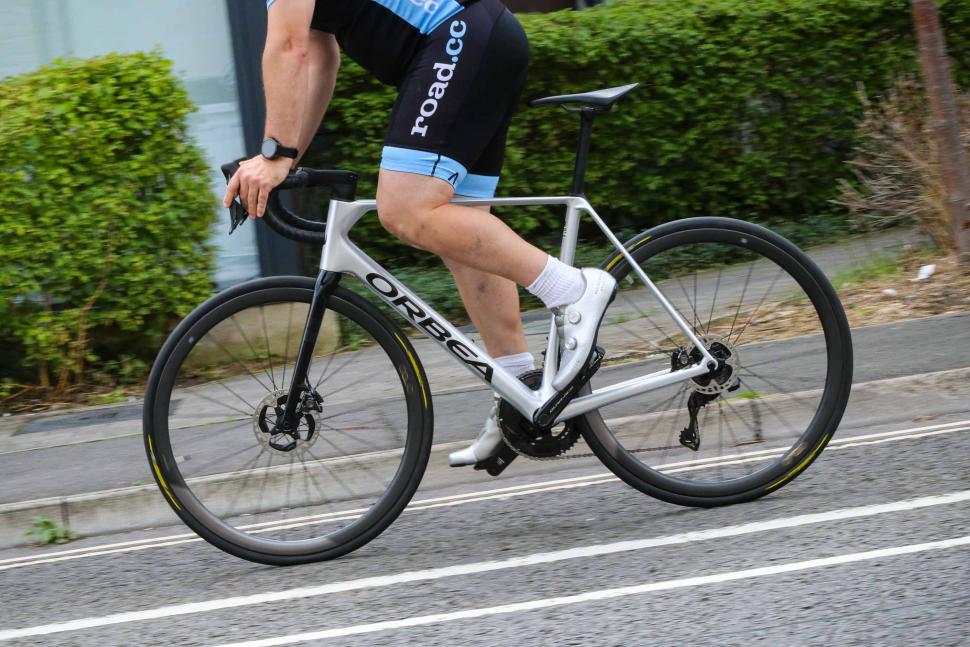
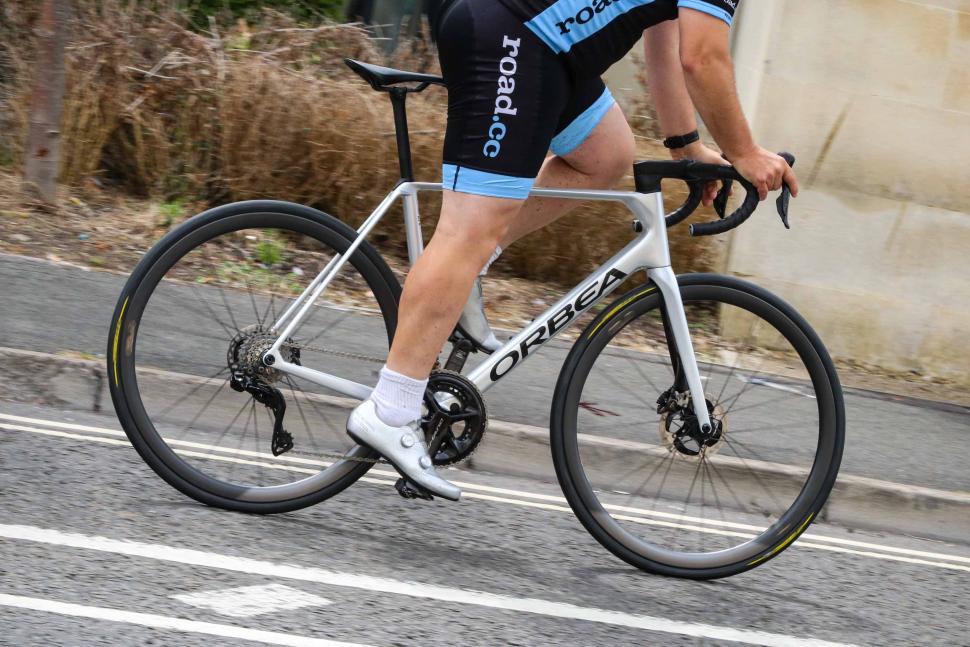

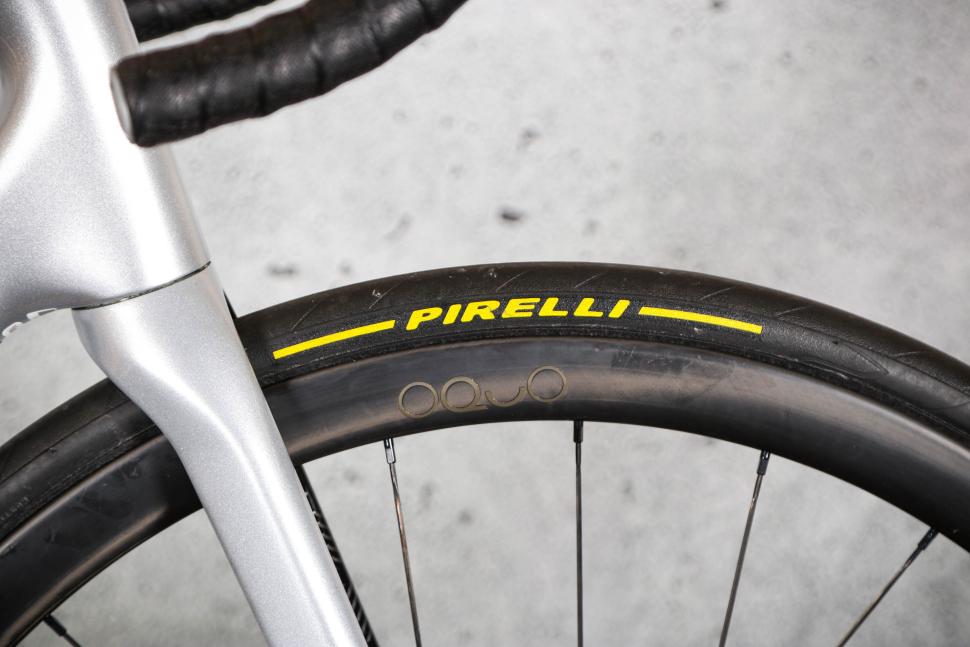
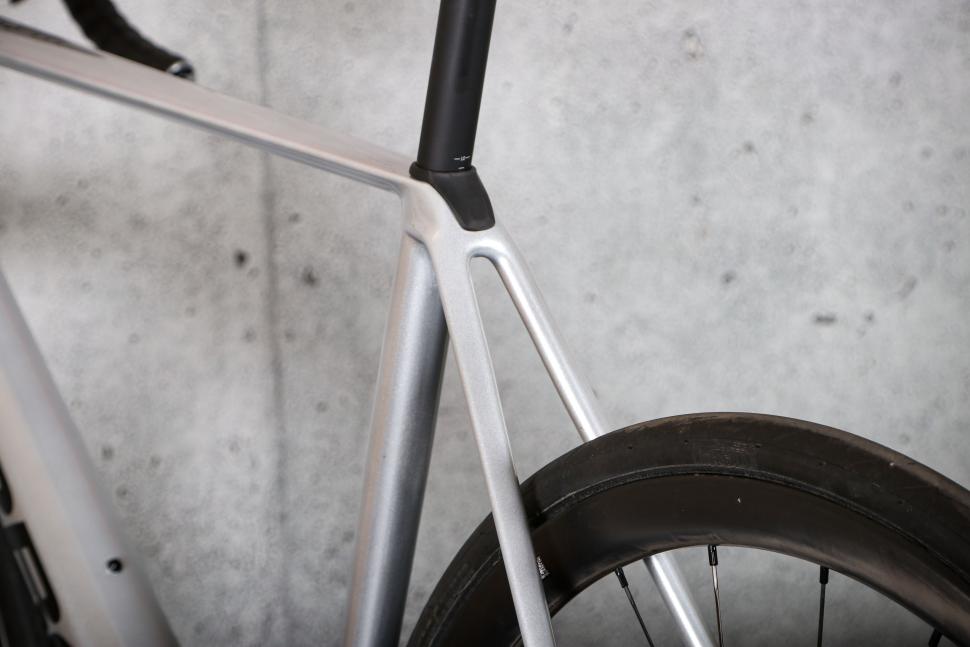
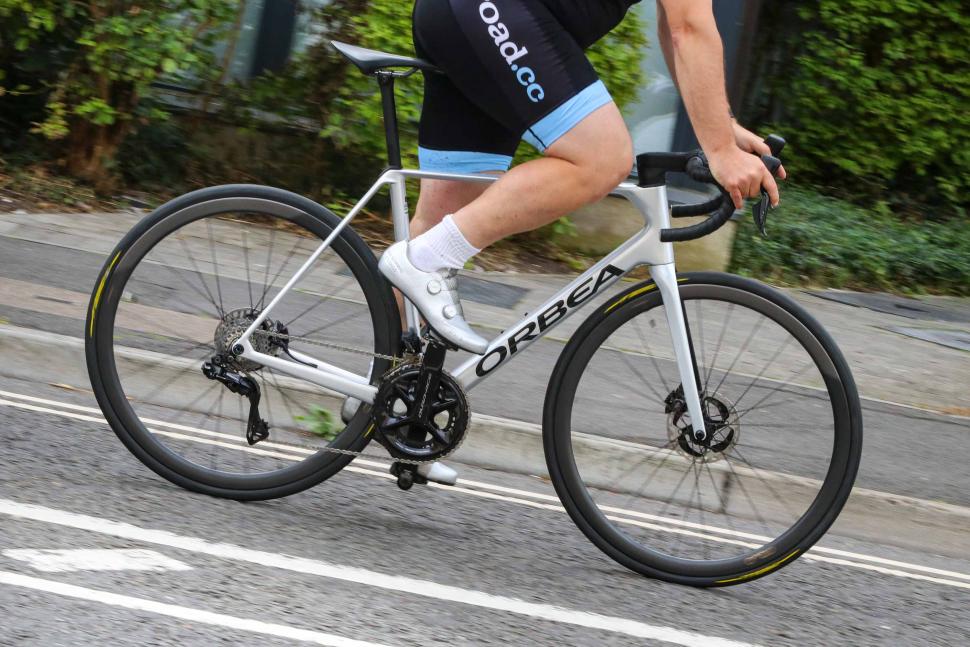
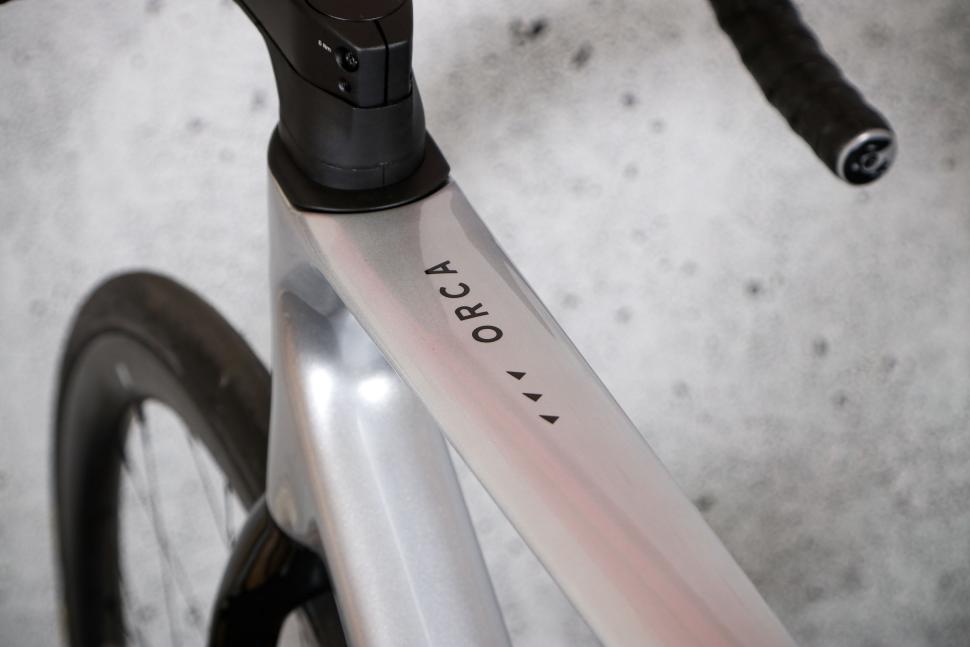
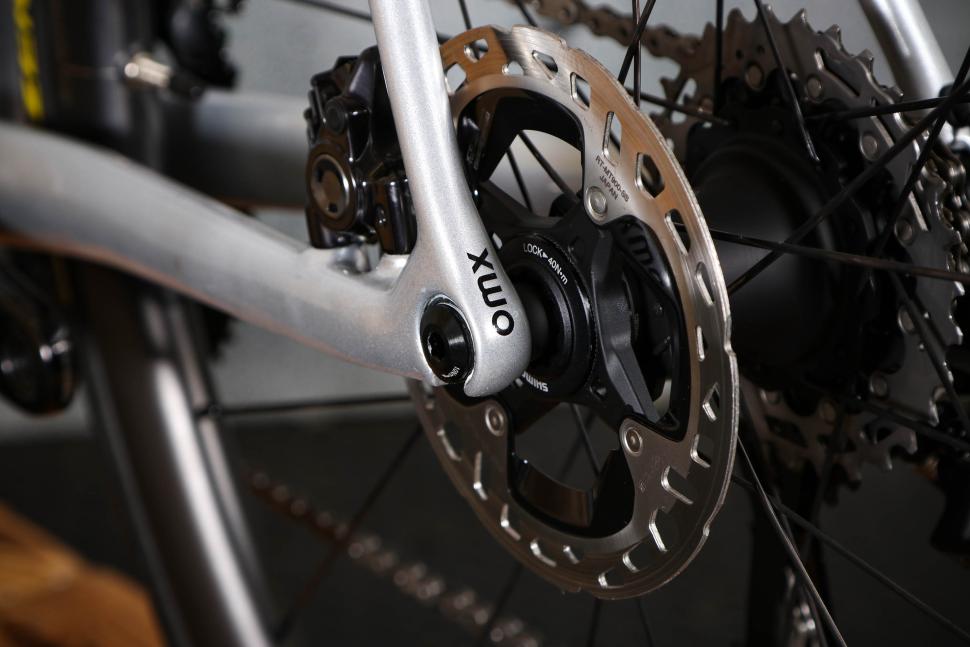











































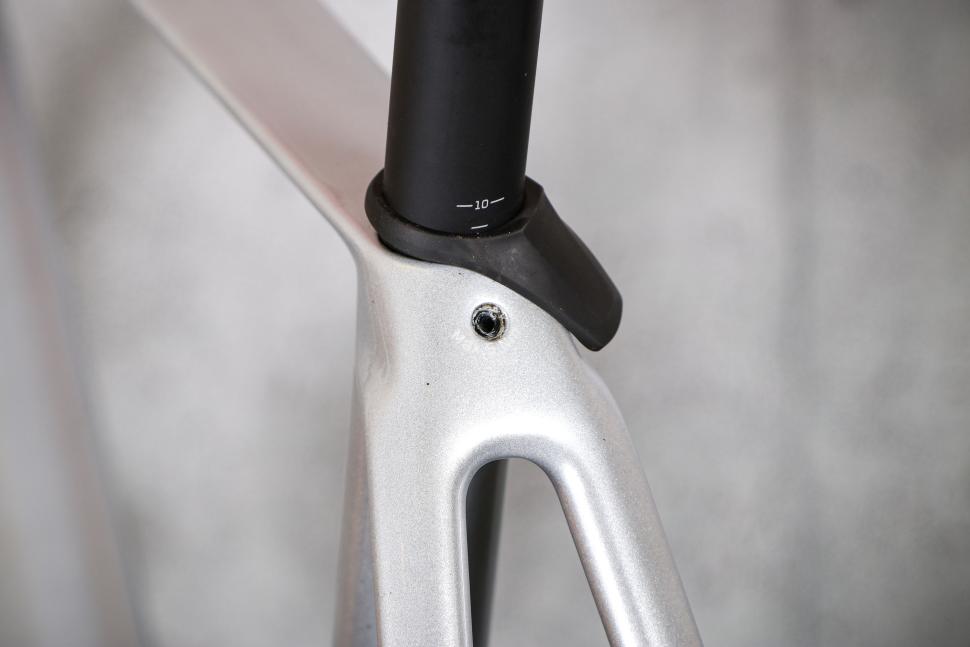


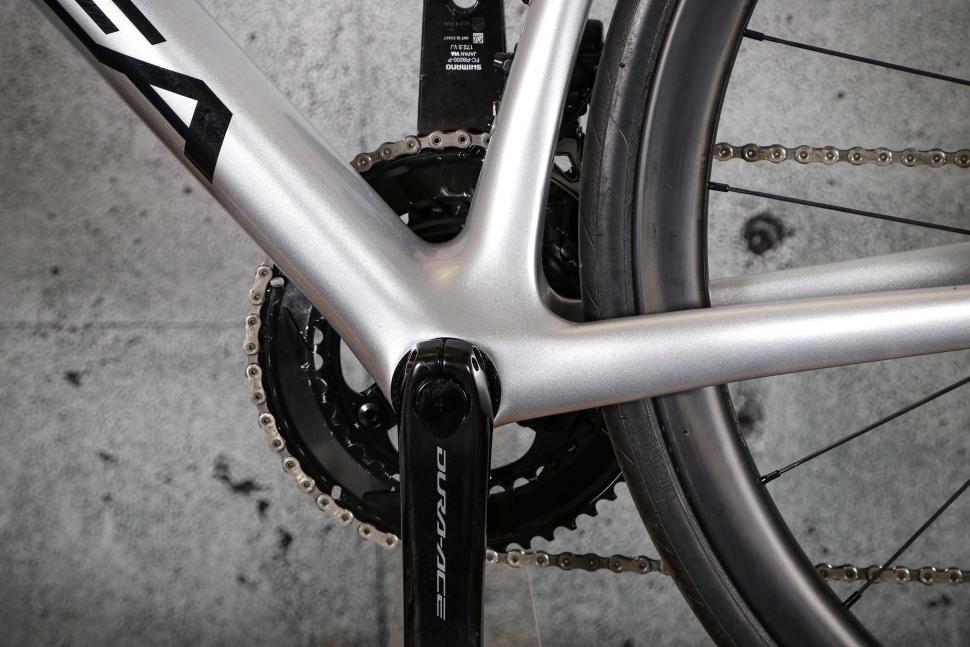
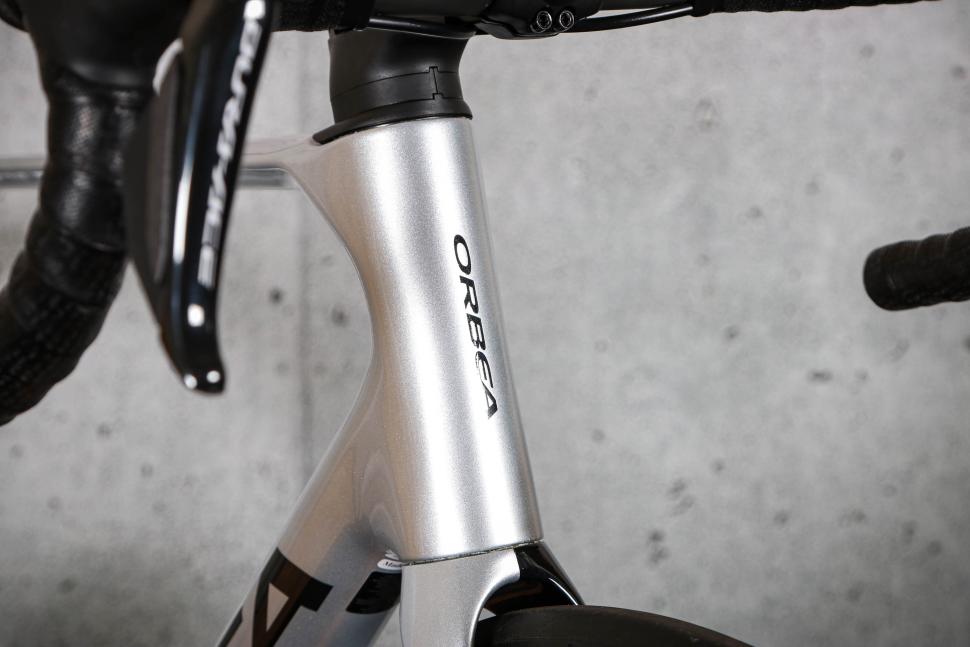

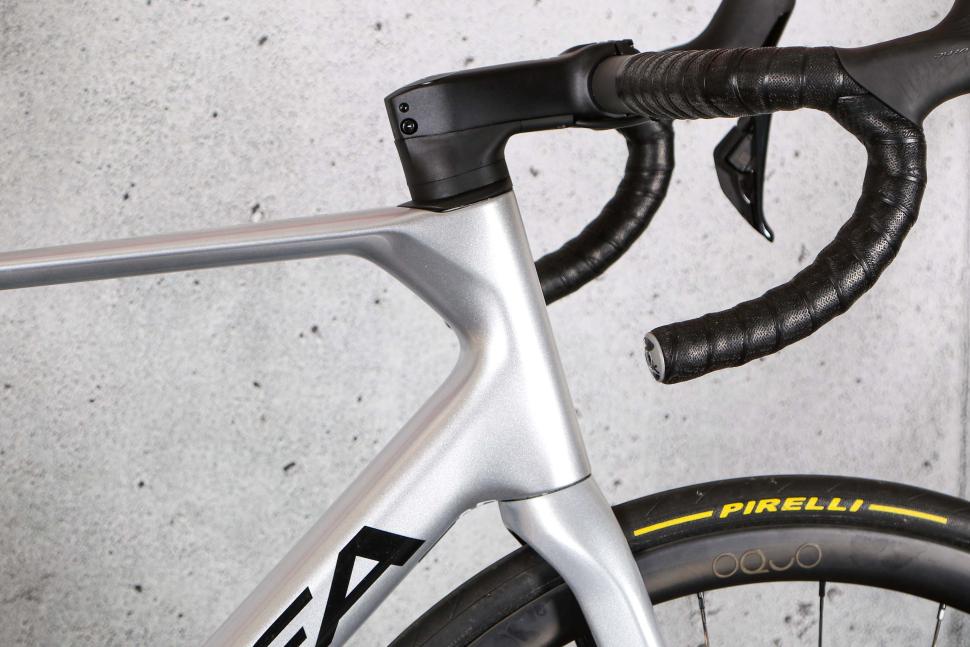

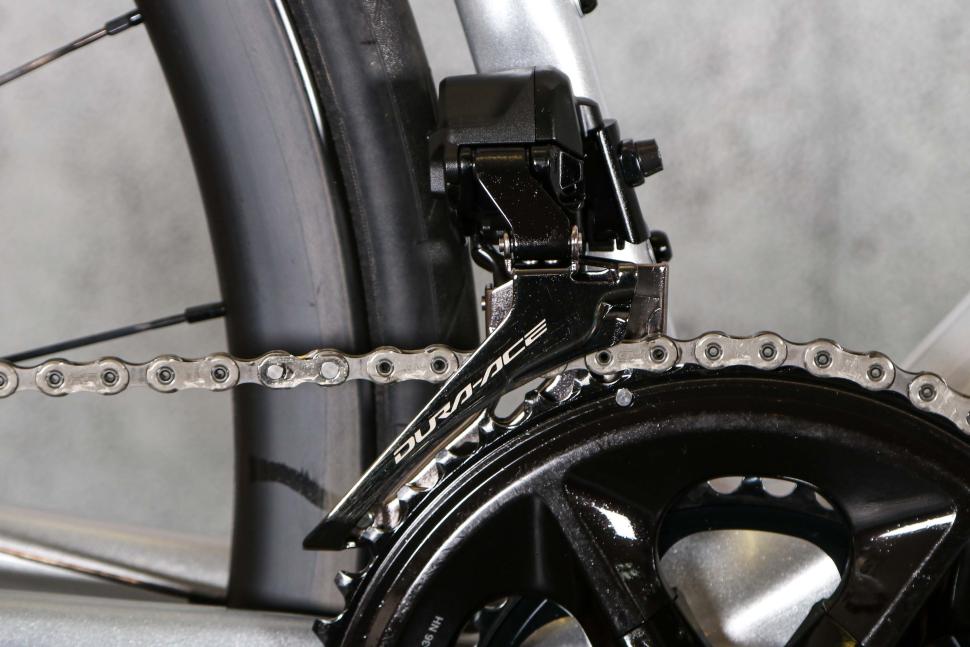

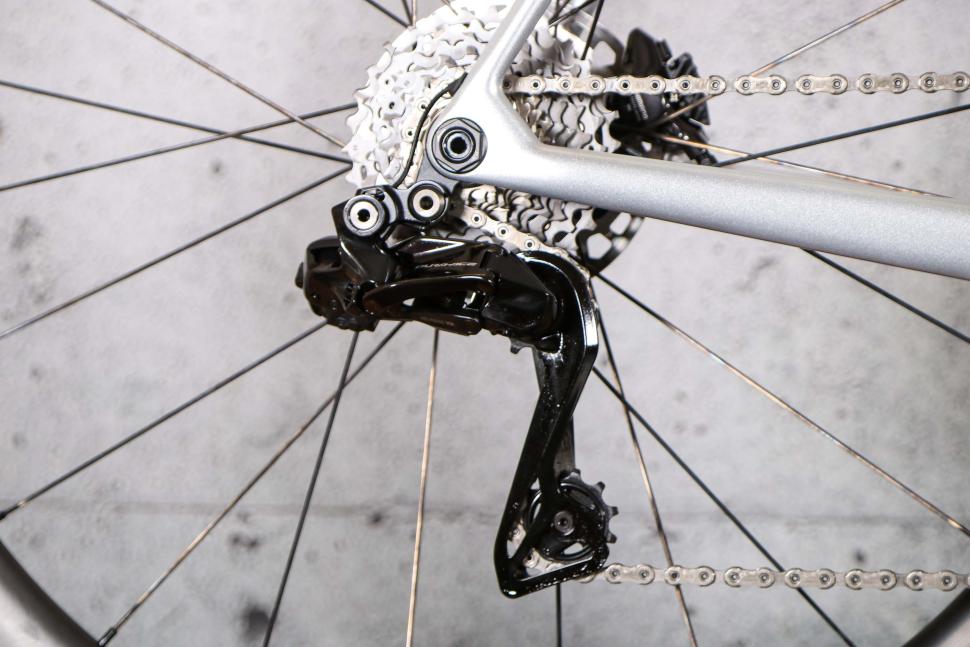

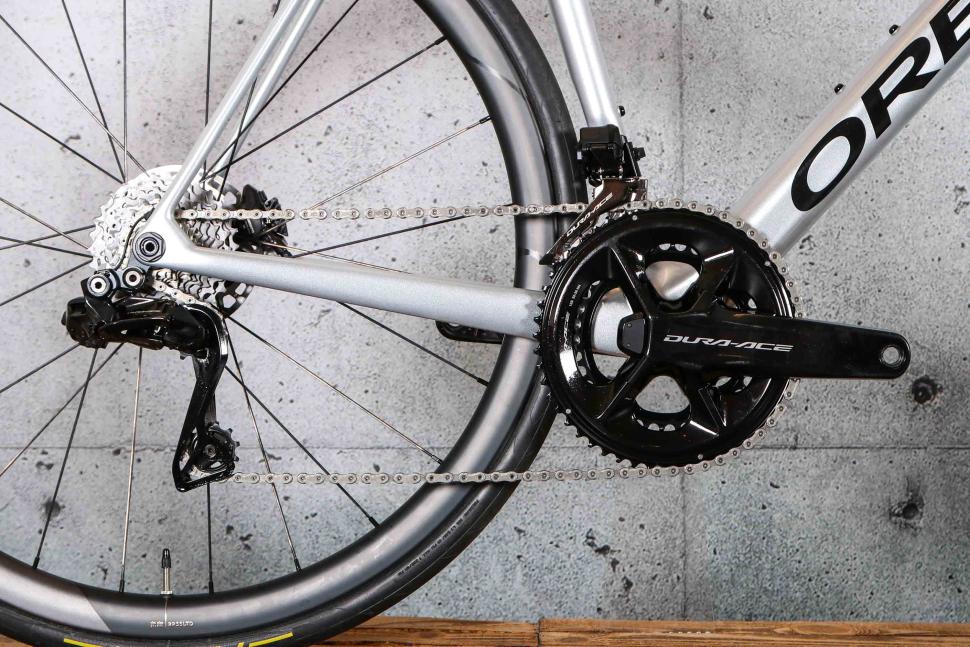

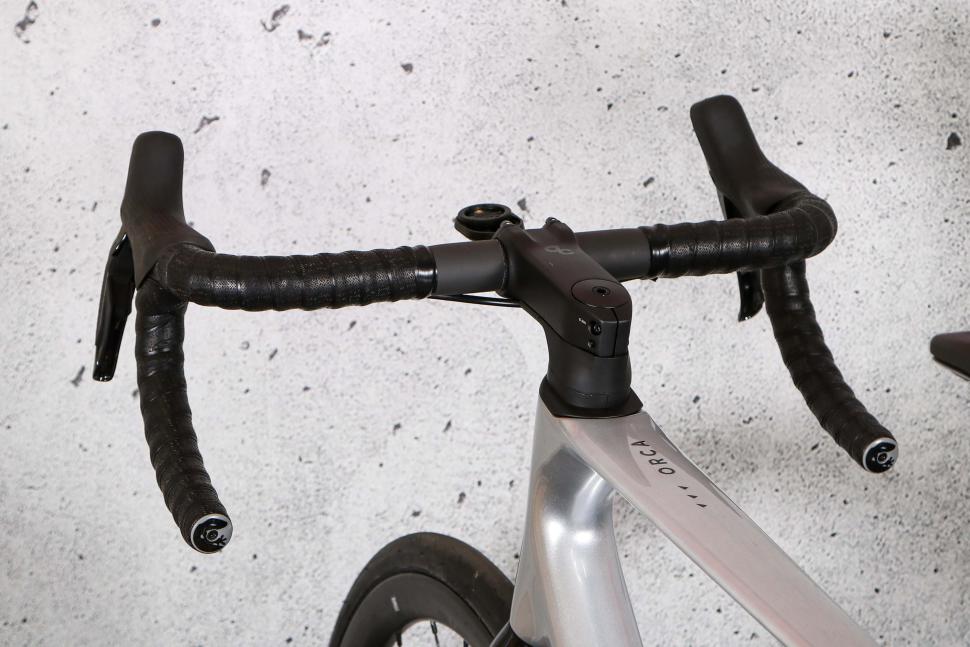
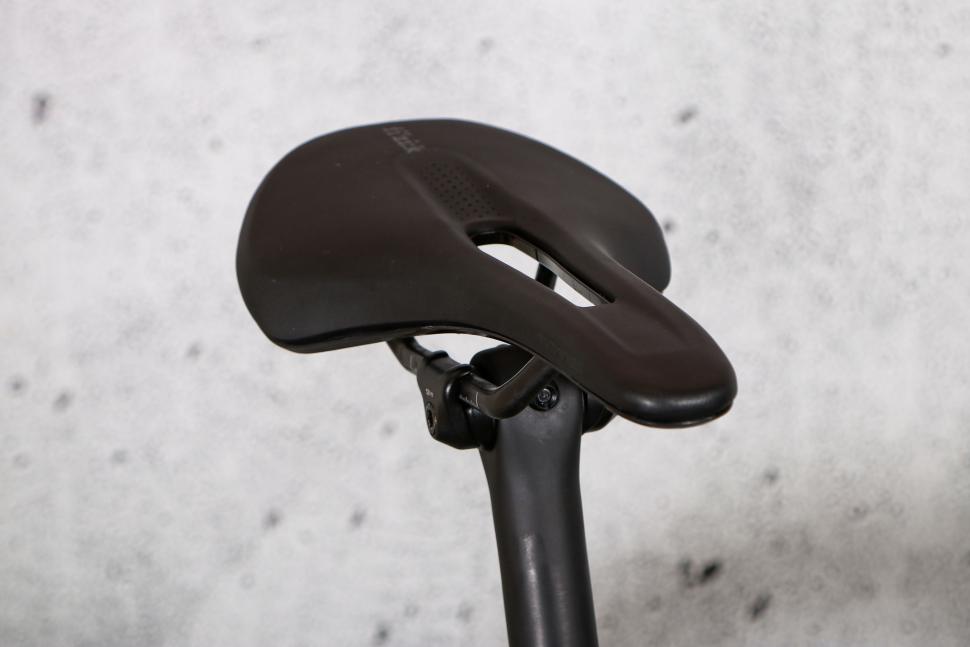

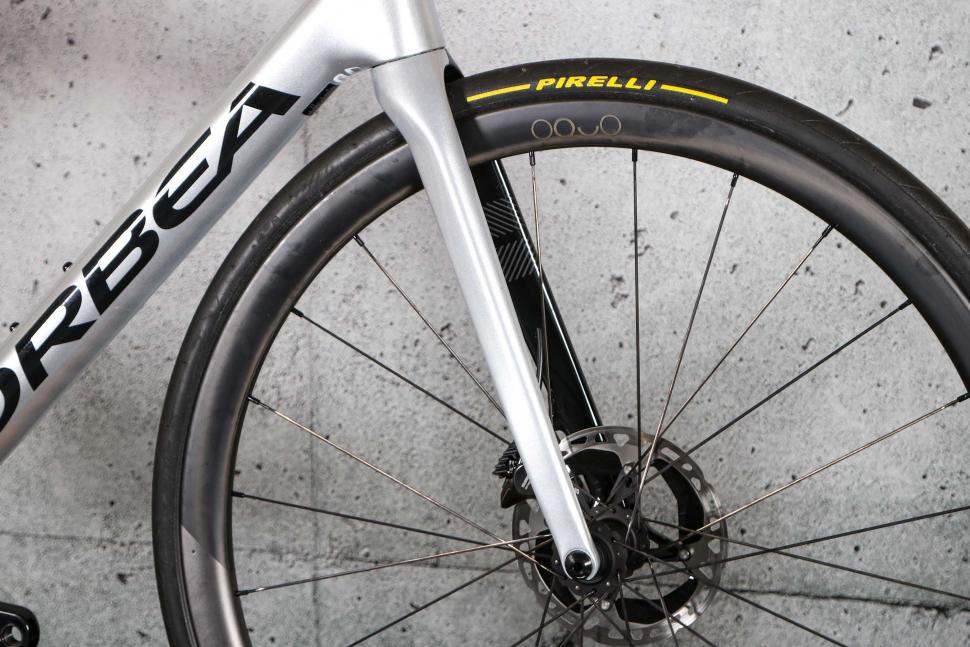
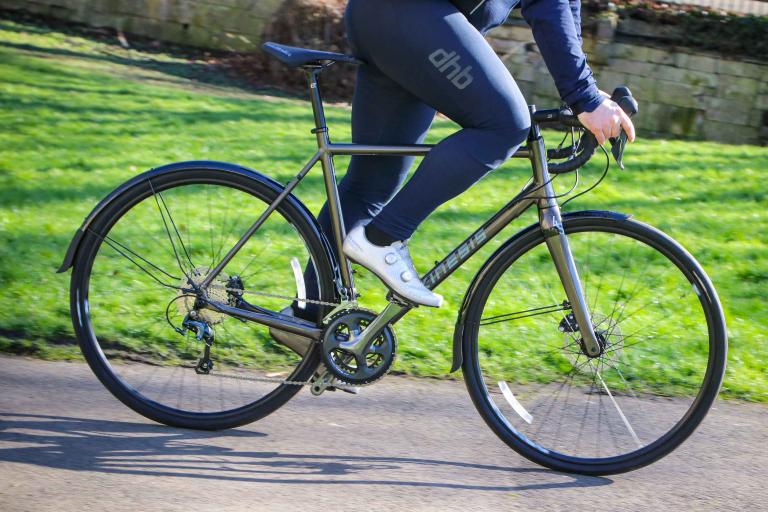
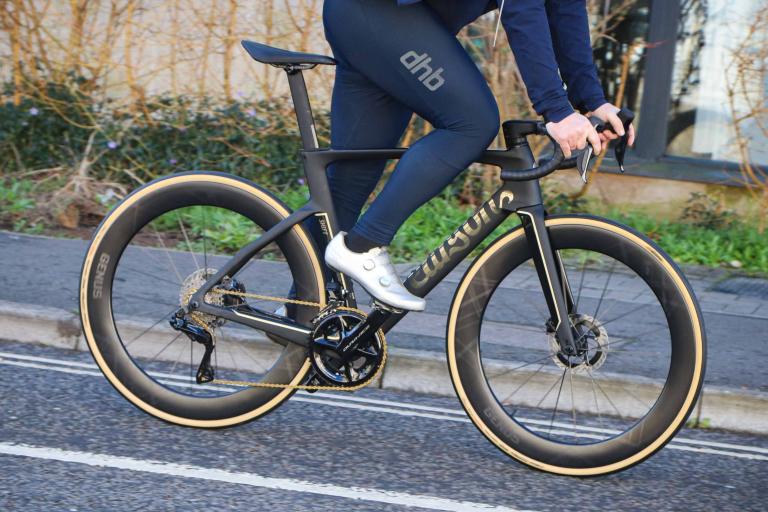
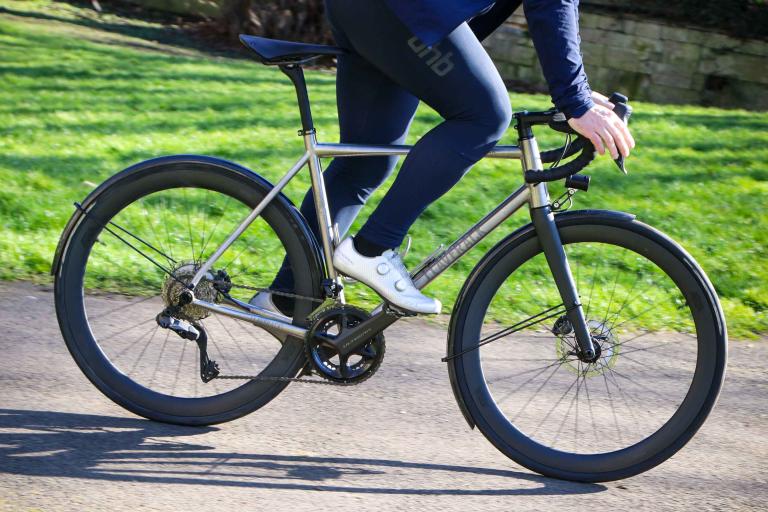
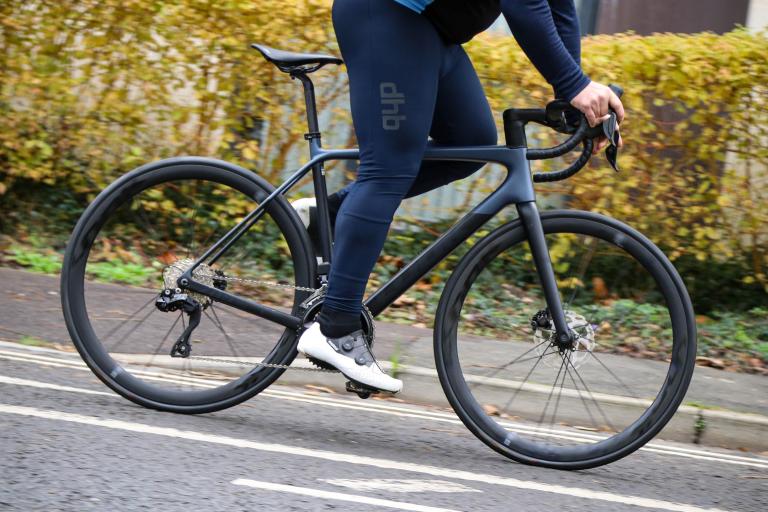
Add new comment
3 comments
The UCI weight MINIMUM limit is 6.8 kg: https://road.cc/buyers-guide/lightest-road-bikes
Given that fact, it should be rather obvious why this bike, which this article itself describes a "pro-peloton-level race bike".....comes in at weight of 7kg.
Consequently this article chosing to describe this bike as "not the lightest" because it weighs 7 kg, makes no sense. Whatsoever.
UCI-compliant and weight-weenie-compliant can actually be two different design objecives. Its important to know and reference what the design objective is for the bike you are reviewing, rather than just rote checklist writing and reaching for the cliches.
I understand what you're saying, but I think when you get north of £10k, for the average amateur road.cc reader who maybe in the market for a so-called superbike, your buying choice is going to be brand over spec. For this money perhaps people will buy Specialized S-Works or Cannondale LAB71, or top-spec stuff from Giant, Trek, or indeed this Orbea in the review if it's what they want. Regardless of weight. Being 200g over UCI "limit" means nothing. A full bidon, multitool and spare tube is >1kg when you're on a Sunday club ride and no team car to sort you out. So does it matter? No, if you love riding the bike. I have a few bikes that are way better than me but I love riding them.
FWIW and I'm no weight-weenie at 85kg, I've built a sub 6kg hillclimb project for less than £1600 (frame previously raced by Kamil Gradek) and it flies up hills despite me being on it, it's not a daily ride though. So lightweight!=big spend.
I went out earlier on my winter shitter this evening in the misty drizzle here on the south coast and absolutely loved it.
I agree with you. Just enjoy riding a bike. Easy to forget that one simple thing.